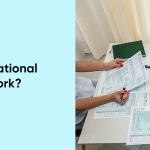No event is completely safe from unexpected mishaps. Whether it’s a wedding, corporate gathering, or family reunion, planning an event requires a lot of time, effort, and money. From booking venues to hiring vendors, the details that make your event special can also come with risks. That’s where event insurance comes in—it acts as a safety net for the unexpected, helping you protect your investment and enjoy peace of mind.
Event insurance is designed to cover unforeseen issues like cancellations, accidents, or property damage. Whether you’re hosting a private party or a large public event, there are coverage options tailored to your specific needs. Let’s dive into what event insurance is, why it’s important, and how it can help you plan your event with confidence.
Why Do You Need Event Insurance?
When you’re investing time and money into an event, the last thing you want is for something unexpected to derail your plans. Event insurance is there to protect you financially from sudden issues, such as non-refundable deposits, last-minute cancellations, or property damage. While the cost of event insurance varies depending on the type and scale of your event, the peace of mind it offers is invaluable.

For example, if severe weather or sudden illness forces you to cancel or postpone your event, cancellation or postponement insurance can help cover the costs of rescheduling vendors or lost deposits. However, it’s important to note that not everything is covered. Policies typically exclude things like “cold feet,” minor weather disruptions, or voluntarily switching vendors. Understanding what’s included in your coverage allows you to plan with confidence, knowing your event is protected.
Types of Event Insurance Coverage
Event insurance isn’t one-size-fits-all. There are different types of coverage available, depending on the nature of your event. Here are some of the most common options:

- Cancellation or Postponement Insurance: This coverage helps if your event needs to be canceled or rescheduled due to unforeseen circumstances, such as severe weather, illness, or venue issues. It can cover costs like lost deposits or rescheduling fees, giving you flexibility if plans change.
- Event Liability Insurance: This is a key component of most event insurance policies. It protects you from claims of injury or property damage during your event. For example, if a guest slips and falls or damages the venue, this coverage ensures you’re not held financially responsible.
- Liquor Liability Insurance: If you’re serving alcohol at your event, liquor liability coverage is essential. It protects you from legal or financial issues if a guest causes harm or property damage after drinking. Many venues even require this coverage as part of their rental agreement.
- Wedding Insurance: Weddings are often the most elaborate events people host, and wedding insurance provides specific protections for your big day. It can cover everything from general liability for injuries or property damage to additional protections like honeymoon coverage or wedding gift coverage.
Why Liquor Liability Insurance Is Essential
If your event involves serving alcohol, liquor liability insurance is a must. This type of coverage protects you if a guest causes harm or property damage after drinking at your event. For example, if a guest leaves your event intoxicated and gets into an accident, you could be held financially responsible without this coverage. Liquor liability insurance ensures you’re protected from these risks, allowing you to host your event with greater peace of mind.
Do You Need Event Insurance?
Deciding whether you need event insurance depends on the type of event you’re hosting and the potential risks involved. If your event involves significant financial investments, such as non-refundable deposits or expensive rentals, insurance is a smart choice. Smaller, low-key events like an elopement or a baby shower may not require coverage, but larger gatherings with multiple guests, vendors, or rented equipment should have comprehensive protection.
Ultimately, event insurance is about safeguarding your investment and ensuring you can enjoy your event without worrying about unexpected costs. It’s a small price to pay for the peace of mind it provides.
Conclusion
Event insurance is a valuable tool for protecting your event from the unexpected. Whether it’s a cancellation, accident, or property damage, having the right coverage ensures you’re prepared for anything. By understanding the different types of coverage available and working with experienced insurance providers, you can find a policy that meets your needs and allows you to focus on creating a memorable occasion.
At the end of the day, event insurance is about more than just financial protection—it’s about giving you the confidence to enjoy your event, knowing you’re covered no matter what surprises come your way.








